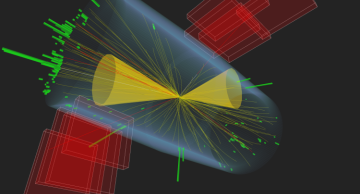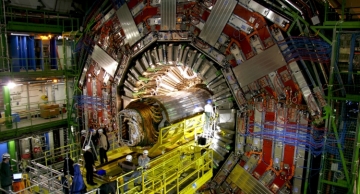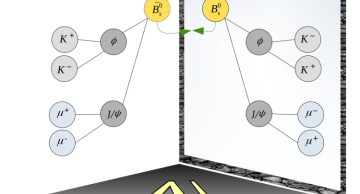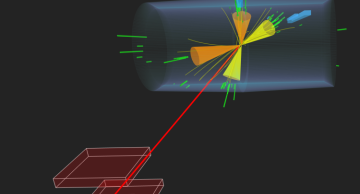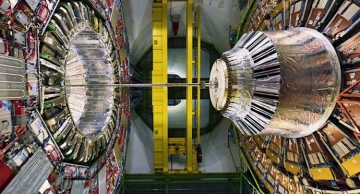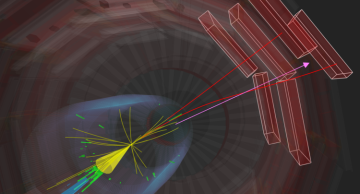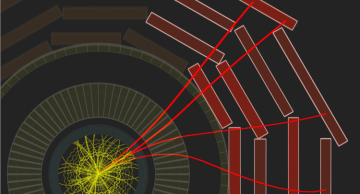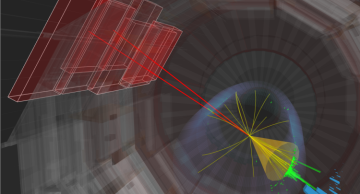It might have occurred to you to look with curiosity at your present the day of your birthday. Wrapped in colorful paper, a surprise was waiting for you. You might be the kind of person who rushes to remove the packaging to see what’s…
The recent results from the Muon g-2 Collaboration have added to the growing tension between the measured and predicted values of the muon’s magnetic moment. The equivalent measurement of this property for the electron is a cornerstone of quantum…
New in! CMS physicists search for heavy cousins of the neutrino in beauty meson decays
Back in 2018, the physicists of the CMS experiment designed and recorded a B-meson-enriched data sample, the “B-Parking” data set. The B mesons (short for…
When we look at ourselves in a mirror, we see a virtual twin, identical but with left and right inverted. Charge-parity (CP) is the equivalent of a mirror for fundamental particles. If the symmetry was respected in nature, each particle would see a…
From time to time, we need to take our cars in for a checkup to make sure everything is up to speed, and here we check up on how well our CMS detector is working. The CMS detector is one of the main detectors at the Large Hadron Collider (LHC) at…
As a next step towards more open access to science, the CMS collaboration has just released in electronic format a set of likelihood functions describing early measurements of the Higgs boson. The full statistical model and the data used to make the…
Following its mission to address fundamental questions about Nature, the Large Hadron Collider (LHC) has operated at different center-of-mass energies, colliding protons and/or heavy ions. In heavy ion collisions, the nucleons (protons and neutrons…
A fundamental parameter of the Standard Model, the electroweak mixing angle plays a key role in the “Higgs mechanism”, when the W and Z gauge bosons get their masses through electroweak symmetry breaking. CMS has now reported a new measurement of…
Cosmological observations tell us that Dark Matter makes up roughly 80% of all the matter in the Universe. However, no Dark Matter particle has ever been observed. To verify whether it can be produced in the laboratory, the CMS Collaboration at the…
The J/ψ meson, a remarkable particle simultaneously discovered by two independent experiments in 1974, has a unique place in the world of experimental particle physics. By revealing the existence of an extra “flavour” of quarks, it…
If you have ever had Neapolitan gelato, you know how important it is to combine three different flavours, each in just the right size. And the Standard Model (SM) of particle physics is not less tasty than that! In the SM, leptons are some of the…
The discovery of the Higgs boson (H), particularly with its decay into two electroweak gauge bosons WW and ZZ, marked a milestone in particle physics. This groundbreaking discovery not only answered long-standing questions but also inspired new…


